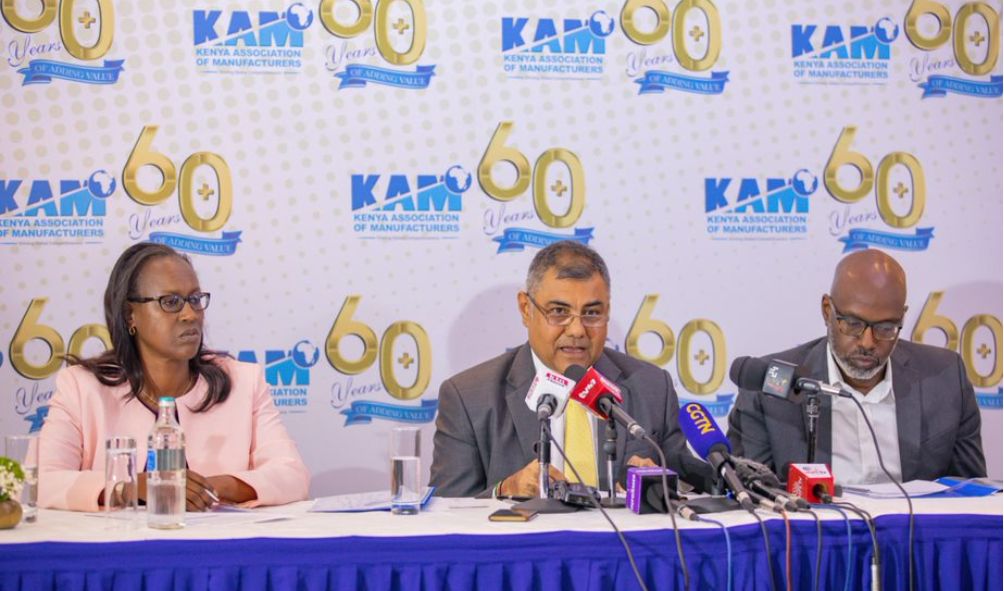Association of Manufacturers warns of import flooding in Kenyan market over Finance Act

Kenya Association of Manufacturers (KAM fears that Kenya could soon become flooded with goods from EAC as a result of the Finance Act 2023
Kenya Association of Manufacturers (KAM fears that Kenya could soon become flooded with goods from EAC as a result of the Finance Act 2023.
After the lifting of conservatory orders by the Court of Appeal, Kenya’s controversial Finance Act 2023 has now taken effect, backdated to July 1, and causing a ripple effect on the cost of living and doing business with the rest of East Africa.
The Kenya Association of Manufacturers (KAM), the Federation of Kenya Employers, and tax firms have queried a decision by the government to impose an Export Development and Promotion Levy (EIPL) on imports, which could see Kenya lose trade with its EAC partners.
According to the new law, the EIPL on all goods imported into the country for home use has been increased from 10 percent to 17.5 percent of the customs value.
But goods originating from EAC partner states that meet the Rules of Origin are exempt.
“The Act has imposed a 10 percent levy under the Export Levy while the rest of East Africa is at zero percent,” said KAM in a statement.
“The immediate impact of that is that the levy will create trade diversion in favour of neighbouring countries. It will also promote investment in Comesa countries.”
KAM said it is not clear which exports the levy is being applied to.
“It should have been called an import levy/tax,” the manufacturers said.
Addressing the National Assembly’s Departmental Committee on Finance and National Planning, KAM argued that Uganda and Tanzania are top sources of Kenya imports within the region, but Tanzania is positioning itself to become the regional hub.
In the past few years, Kenyan imports from Tanzania have increased significantly, from Ksh18 billion ($126 million) in 2018 to Ksh54 billion ($378 million) in 2022.
“If Kenya is not careful, it will become a supermarket of the region,” they warned.
They acknowledged that some of the proposals in the law are aimed at promoting manufacturing growth in some sectors, but raised concerns on several others that will hinder the objective.
The Act has introduced import tax on steel, and other manufacturing sectors while the neighbouring countries have zero-rated them.
Kenya has imposed a 10 percent levy on galvanized iron wire, which is zero-rated in the rest of the EAC.
ICC Prosecutor Karim Khan responds to Raila letter as he supports Ruto’s reform agenda
Controversial pastor Mackenzie breaks down in court over claims of police mistreatment
Ruto’s subsidized fertilizer part of a donation from Russia, Govt insider
Mudavadi issues ultimatum to top government officials after Ruto order
Inside Ruto’s FIVE-day tour of Mt Kenya; set to launch several projects
“The CET rate is 25 percent but there is a regional duty remission to apply zero percent. With the introduction of the levy for this particular product, the trade will favour Tanzania and Uganda,” said KAM.
“This tax should have been put on finished products and not raw materials.”
In a webinar titled A Deep Dive into the Impact of the Finance Act 2023 organized by the FKE and tax and audit firm BDO Global, FKE boss Jacqueline Mugo and BDO tax manager Tom Komu noted that the introduction of EIPL is ostensibly to boost manufacturing, increase exports, create jobs, save on foreign exchange and promote investments.
“But the direct implication to levy a similar tax that is zero-rated in the rest of the region is that EAC partner states will have a field day in the manufacturing of the products in steel, cement, and paper products thereby exporting jobs outside the country,” FKE boss Jacqueline Mugo and BDO tax manager Tom Komu noted.
The Finance Act 2023 has reviewed the 1.5 percent Import Declaration Fees (IDF) on imported raw materials and intermediate products and increased it to 2.5 percent for all manufacturers.
The review will raise the cost of importation and subsequently the price of manufacturing essential goods. The increased costs will be passed on to consumers who are already struggling with the high cost of living.
The high cost of electricity in Kenya has a significant impact on the overall economy. “Electricity cost being an input cost, Kenya’s goods and services prices remain comparatively higher in the region.
This is likely to incentivize imports more than local production,” said KAM.
“With the high energy costs, Kenya continues to lose its attractiveness as an investment destination with the results of lower direct foreign investment inflows.”
Also read,
Ruto assures Mt Kenya residents there’ll be no handshake with Raila
ICC is not hot air, Karim Khan says while in Kenya
Proposal to lower public service retirement age to 55
Why Kenya Kwanza is unable to honour Azimio scheduled date for Ruto-Raila talks
Details of Kenyatta family meeting in London leaked
Follow us




